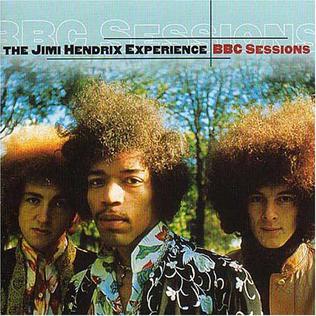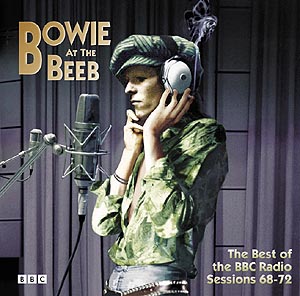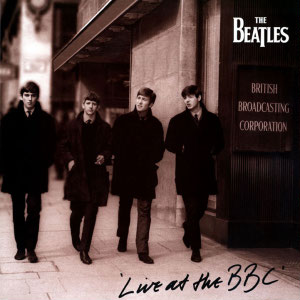
James Marshall "Jimi" Hendrix was an American guitarist, songwriter and singer. Although his mainstream career spanned only four years, he is widely regarded as the greatest and one of the most influential electric guitarists in the history of popular music, and one of the most celebrated musicians of the 20th century. The Rock and Roll Hall of Fame describes him as "arguably the greatest instrumentalist in the history of rock music."

Edwin H. Kramer is a South African-born recording producer and engineer. He has collaborated with several artists now in the Rock and Roll Hall of Fame, including Jimi Hendrix, the Beatles, David Bowie, the Rolling Stones, Led Zeppelin, Eric Clapton, the Kinks, Kiss, John Mellencamp, and Carlos Santana, as well as records for other well-known artists in various genres.

Axis: Bold as Love is the second studio album by the Jimi Hendrix Experience. It was first released by Track Records in the United Kingdom on December 1, 1967, only seven months after the release of the group's highly successful debut album, Are You Experienced. In the United States, Reprise Records delayed the release until the following month. The album reached the top ten in the album charts in both countries.
Strange Fruit Records was an independent record label in the United Kingdom.

Electric Lady Studios is a recording studio in Greenwich Village, New York City. It was commissioned by rock musician Jimi Hendrix in 1968 and designed by architect John Storyk and audio engineer Eddie Kramer by 1970. Hendrix spent only ten weeks recording in Electric Lady before his death that year, but it quickly became a famed studio used by many top-selling recording artists from the 1970s onwards, including Led Zeppelin, Stevie Wonder, and David Bowie.
Top Gear was a BBC Radio programme broadcast between 1964 and 1975. It was known for its specially recorded sessions in addition to playing records. Top Gear began life in 1964 on the BBC Light Programme and was revived with a progressive rock focus in 1967 on BBC Radio 1, running with that format until its end in 1975. After its demise, host John Peel kept the same format for his own show on Radio 1 until his death.

Band of Gypsys is a live album by Jimi Hendrix and the first without his original group, the Jimi Hendrix Experience. It was recorded on January 1, 1970, at the Fillmore East in New York City with Billy Cox on bass and Buddy Miles on drums, frequently referred to as the Band of Gypsys. The album mixes funk and rhythm and blues elements with hard rock and jamming, an approach which later became the basis of funk rock. It contains previously unreleased songs and was the last full-length Hendrix album released before his death six months later.

"Sgt. Pepper's Lonely Hearts Club Band" is a song written by Paul McCartney, credited to Lennon–McCartney, released in 1967 on the album of the same name by the Beatles. The song appears twice on the album: as the opening track, and as "Sgt. Pepper's Lonely Hearts Club Band (Reprise)", the penultimate track. As the title song, the lyrics introduce the fictional band that performs on the album.

BBC Sessions is an album of recordings by the rock group the Jimi Hendrix Experience, released on MCA Records on June 2, 1998. It contains all the surviving tracks from their various appearances on BBC radio programmes, such as Saturday Club and Top Gear, recorded in 1967.
"The Supermen" is a song written by the English singer-songwriter David Bowie in 1970 and released as the closing track on the album The Man Who Sold the World. It was one of a number of pieces on the album inspired by the works of literary figures such as Friedrich Nietzsche and H. P. Lovecraft.

Bowie at the Beeb is a compilation album by the English singer-songwriter David Bowie, first released in 2000. Originally, it came in a three-CD set, the third, bonus CD being a live recording made on 27 June 2000 at the Portland BBC Radio Theatre. Later editions contain only the first two CDs.

"Burning of the Midnight Lamp" is a song recorded by English-American rock trio the Jimi Hendrix Experience. Written by frontman Jimi Hendrix and produced by band manager Chas Chandler, it features R&B group Sweet Inspirations on backing vocals.

Live at the BBC is a 1994 compilation album featuring performances by the Beatles that were originally broadcast on various BBC Light Programme radio shows from 1963 to 1965. The mono album, available in multiple formats but most commonly as a two-CD set, consists of 56 songs and 13 tracks of dialogue; 30 of the songs had never been issued previously by the Beatles. It was the first official release by the Beatles of previously unreleased performances since The Beatles at the Hollywood Bowl in 1977 and the first containing previously unreleased songs since their final studio album, Let It Be, in 1970.

Seven Ages of Rock is a BBC Two series, co-produced by BBC Worldwide and VH1 Classic in 2007 about the history of rock music.

Maida Vale Studios is a complex of seven BBC sound studios, of which five are in regular use, in Delaware Road, Maida Vale, west London.

Jimi Hendrix (1942–1970) was an American guitarist whose career spanned the years between 1962 and 1970. His posthumous discography includes recordings released after September 18, 1970. Hendrix left behind many recordings in varying stages of completion. This material, along with reissues of his career catalogue, has been released over the years in several formats by various producers and record companies. Since Experience Hendrix, a company owned and operated by members of the Hendrix family, took control of his recording legacy in 1995, over 15 Hendrix albums have appeared on the main US albums chart. Several of these have also placed on charts in more than 18 countries around the world.

"Hear My Train A Comin'" is a blues-based song written by Jimi Hendrix. Lyrically, it was inspired by earlier American spirituals and blues songs which use a train metaphor to represent salvation. Hendrix recorded the song in live, studio, and impromptu settings several times between 1967 and 1970, but never completed it to his satisfaction.
Jeff Gold is an American music business executive, author, music historian, Grammy Award winning art director, and music memorabilia collector and dealer.
David Bowie recorded twelve radio sessions for the BBC between 1967 and 1972. Many of the tracks – but not all – were released on the Bowie at the Beeb 2-CD Set (2000). Some of the tracks missing from the first few sessions not included on Bowie at the Beeb 2-CD Set appear on later editions of David Bowie (1967) and David Bowie (1969). A few more tracks appear on BBC Sessions 1969–1972 (Sampler) [1996]; Bowie at the Beeb 4-LP Edition [2016]). However, many of the missing tracks from the Bowie at the Beeb 2-CD Set are only available on bootlegs and online. 'Hang Onto Yourself' from 11 Jan 1972 has,to date, not appeared in either master tape or bootleg form. This is because many of the original mastertapes are long gone, with sometimes only the broadcast tapes existing, meaning songs that were recorded but not originally broadcast, or only broadcast in edited form, are lost; or in at least one case, only a partial recording of a broadcast exists, with the broadcast tape no longer available. This article gives an overview of all the sessions, along with where they have received their official release.













